unlevered free cash flow vs levered
The difference between levered and unlevered free cash flow is expenses. In other words its what you have before levered cash flow the funding left after financial obligations have been met.
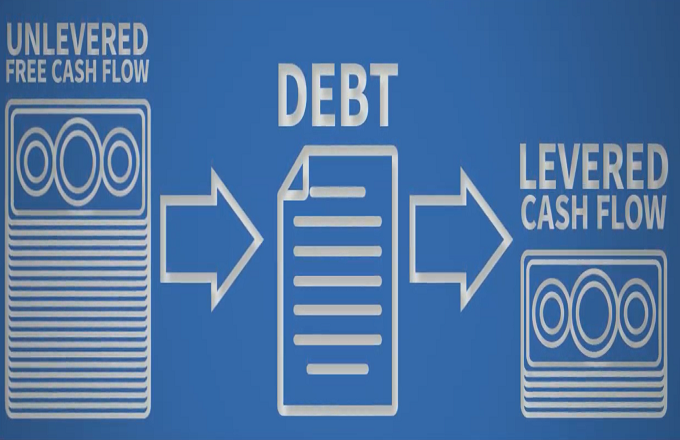
Understanding Levered Vs Unlevered Free Cash Flow
Unlevered firms began with owned capital and thus no debts.
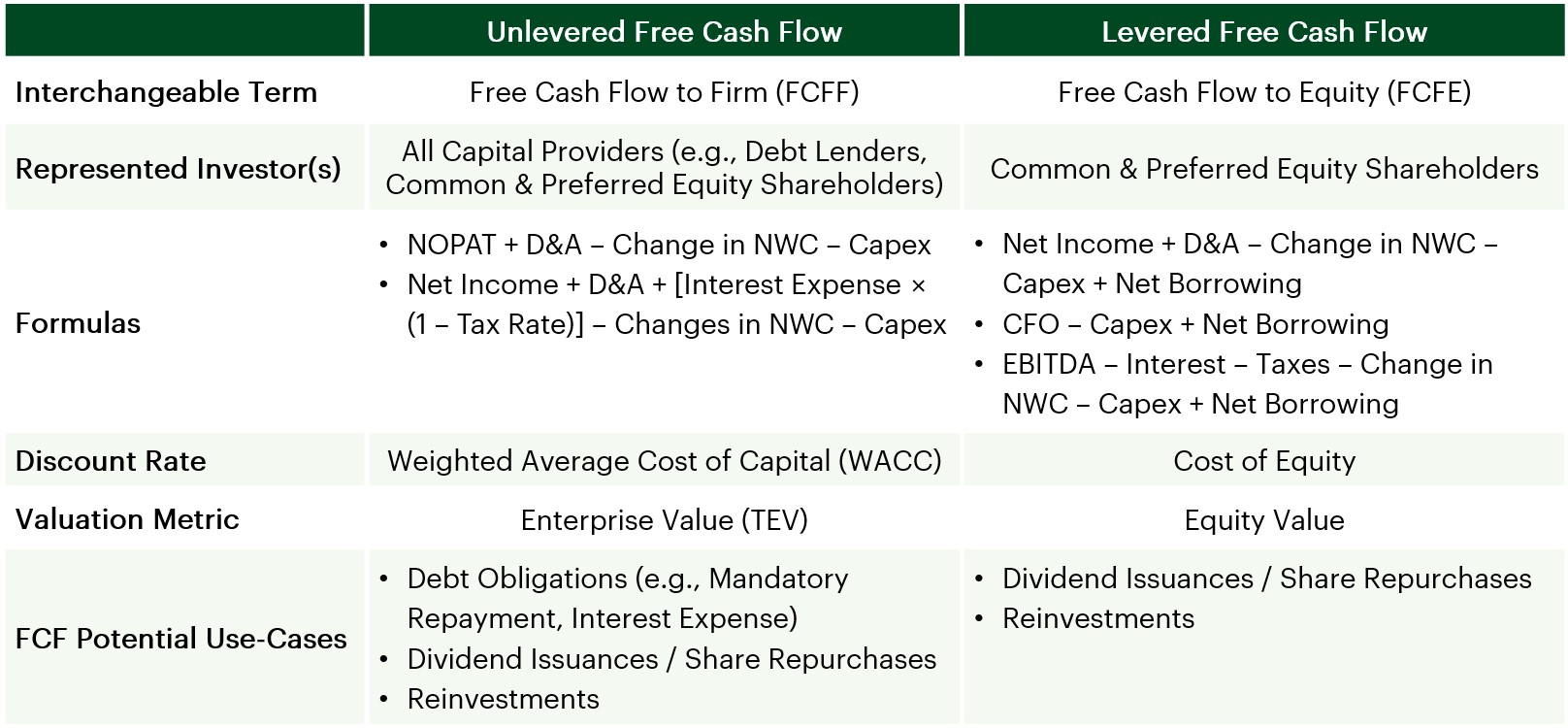
. Levered cash flow is the amount of cash a business has after it has met its financial obligations. Unlevered Free Cash Flow. What is levered vs unlevered cash flow.
Its a better indicator of financial health. Its principal application is in valuation where a discounted cash flow DCF model DCF Model Training Free Guide A DCF model is a specific type of financial model used to value a business. Free Cash Flow to Equity While unlevered free cash flow looks at the funds that are available to all investors levered free cash flow looks for the cash flow that is available to just equity investors.
While unlevered free cash flow excludes debts levered free cash flow includes them. The levered FCF yield comes out to 51 which is roughly 41 less than the unlevered FCF yield of 92 due to the debt obligations of the company. Unlevered cash flow is the amount of cash that a property produces before taking into account the impact of loan payments.
The most important application of these concepts is when calculating return metrics like cash on cash. The difference between levered and unlevered FCF is that levered free cash flow LFCF subtracts debt and interest from total cash whereas unlevered free cash flow UFCF leaves it in such that LFCF Net Profit DA ΔNWC CAPEX Debt and UFCF EBIT 1-tax rate DA ΔNWC CAPEX. Cash Flow from Operations CapEx.
Levered free cash flow is often considered more important for determining actual profitability. And Free Cash Flow to Equity FCFE or Unlevered Free Cash Flow vs Levered Free Cash Flow. Levered cash flow is the amount of free cash available to pay dividends the amount of cash available to equity holders after paying debt In some models analysts will use leveraged free cash flows as only.
Unlevered free cash flow is used to remove the impact of capital structure on a firms value and to make companies more comparable. On the other hand unlevered free cash flow UFCF is the sum available before debt payments are made. The difference between UFCF and LFCF is the financial obligations interest and principal.
Levered refers to a firm that borrowed some amount of capital to begin. Free Cash Flow to Firm FCFF commonly referred to as Unlevered Free Cash Flow. Levered free cash flow is the amount of cash a business has after paying debts and other obligations.
While unlevered free cash flows refer to the cash flows generated by the company without considering its financing structure levered free cash flows are impacted by the amount of financial debt used. Unlevered free cash flow is the gross free cash flow generated by a company. FCFF vs FCFE FCFF vs FCFE Existují dva typy volných peněžních toků.
Used to value equity with a Cost of Equity discount rate only if there are no bondholders andor preferred shareholders FCFF Free Cash Flow to Firm Unlevered Free Cash Flow UFCF The value of the entire firm or enterprise. Unlevered free cash flow is the money the business has before paying its financial obligations. Unlevered free cash flow is the money the business has before paying its financial obligations.
Includes interest expense but NOT debt issuances or repayments. Unlevered free cash flow is important to financial health because it highlights the gross cash amount. This is because a business is liable for paying its debts and expenses in order to generate a profit.
Levered free cash flow assumes the business has debts and uses borrowed capital. Excludes interest expense and ALL debt issuances and repayments. It is also thought of as cash flow after a firm has met its financial obligations.
Levered cash flow is the amount of cash that a property produces after operating expenses and debt service. Levered Free Cash Flow is considered to be an important metric from the perspective of the investors. Levered cash flow is the amount of cash a business has after it has met its financial obligations.
Levered Free Cash Flow. If all debt-related items were removed from our model then the unlevered and levered FCF yields would both come out to 115. Thus a positive LFCF illustrates a companys ability to cover all financial obligations distribute dividends and grow.
What is Levered Free Cash Flow. Leverage is another name for debt and if cash flows are levered that means they are net of interest payments. Unlevered Free Cash Flow is the money that is available to pay to the shareholders as well as the debtors.
Levered free cash flow on the other hand works in favor of the business that didnt borrow any capital and doesnt necessarily show a comparative analysis of each companys ability to generate cash flow on an ongoing basis. Therefore levered free cash flow includes the impact of financial leverage. Operating expenses and interest payments are examples of financial obligations that are paid from levered free.
Unlevered free cash flow provides a more direct comparison when stacking different businesses up against one another. Its principal application is in valuation where a discounted cash flow model. Unlevered free cash flow is the amount of cash a company has prior to making its debt payments.
Unlevered Cash Flow cannot be considered in isolation because it does not incorporate the payments that are to be made to the debt holders. Levered cash flow is representative of the amount of money. Unlevered free cash flow is used in both DCF valuations and debt capacity analysis and represents the total cash generated for both debt and equity holders.
FCFE Free Cash Flow to Equity Levered Free Cash Flow LFCF The value of a company if all debt was paid off. Includes interest expense and mandatory debt repayments but opinions on this differ. Therefore youll find that unlevered free cash flow is higher than levered free cash flow.
The key difference between Unlevered Free Cash Flow and Levered Free Cash Flow is that Unlevered Free Cash Flow excludes the impact of interest expense Interest Expense Interest expense arises out of a company that finances through debt or capital leases. Unlevered free cash flow is used to remove the impact of capital structure on a firms value and to make companies more comparable. FCFE Free Cash Flow to Equity Levered Free Cash Flow LFCF The value of a company if all debt was paid off.
Unlevered free cash flow or sometimes just unlevered cash flow refers to the free cash flow a business has available before its satisfied its interest and other debts.

Discounted Cash Flow Analysis Street Of Walls
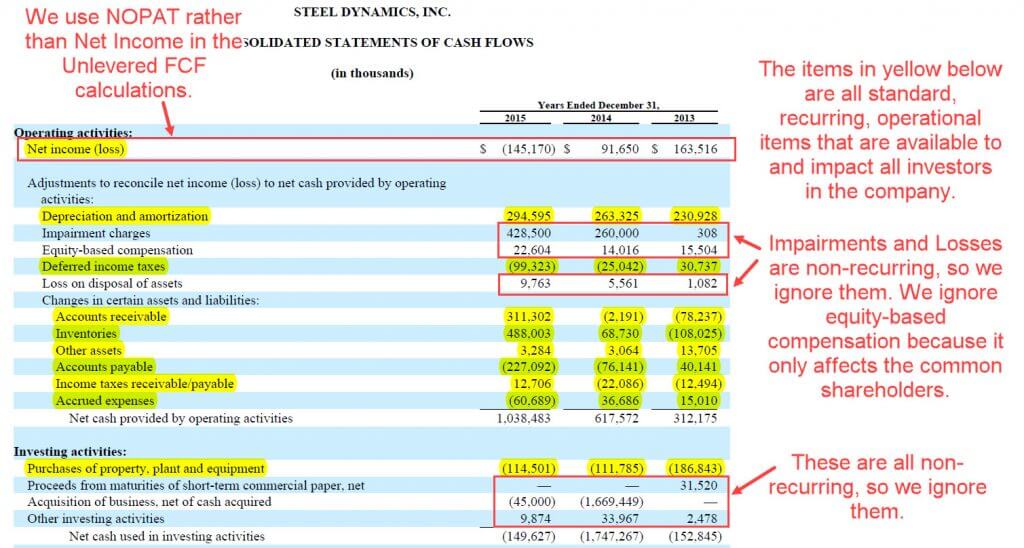
Unlevered Free Cash Flow Formulas Calculations And Full Tutorial

What Is Levered Free Cash Flow Definition Meaning Example

Fcf Yield Unlevered Vs Levered Formula And Calculator
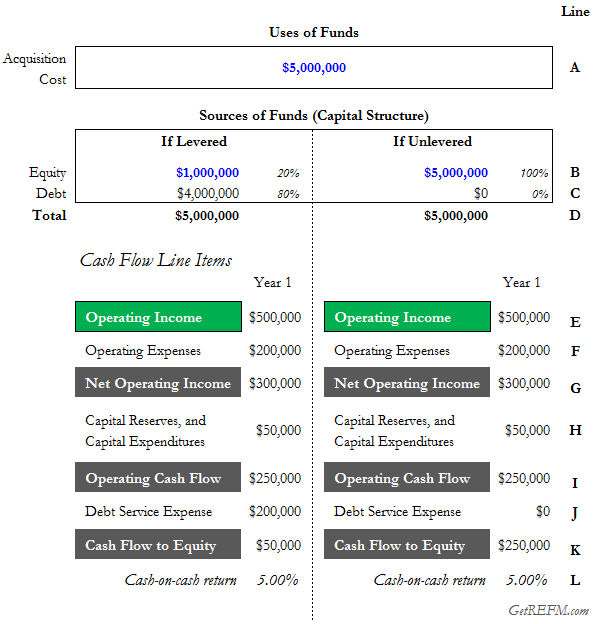
60 Second Knowledge Bite Levered Vs Unlevered Cash On Cash Returns Real Estate Financial Modeling
/318fd1c560d72df660125152d9538c54-94be4c876080468c9301fe9617b86057.jpg)
Levered Free Cash Flow Lfcf Definition
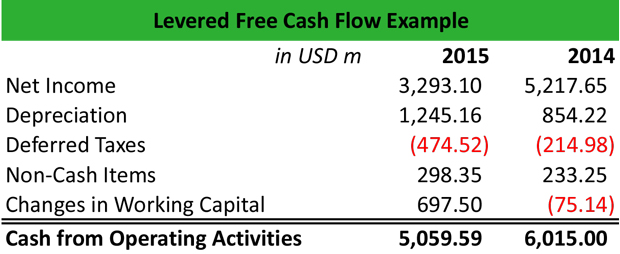
What Is Levered Free Cash Flow Definition Meaning Example

Fcf Yield Unlevered Vs Levered Formula And Calculator

Unlevered Free Cash Flow Ufcf Lumovest

Levered Vs Unlevered Free Cash Flow Difference Wall Street Oasis

Business Valuation Models Two Methods 1 Discounted Cash Flow 2 Relative Values Ppt Download

What Is Free Cash Flow Calculation Formula Example
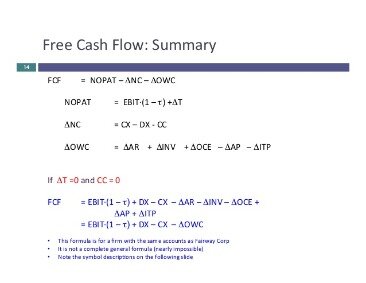
Unlevered Free Cash Wave Accounting

Unlevered Free Cash Flow Definition Examples Formula
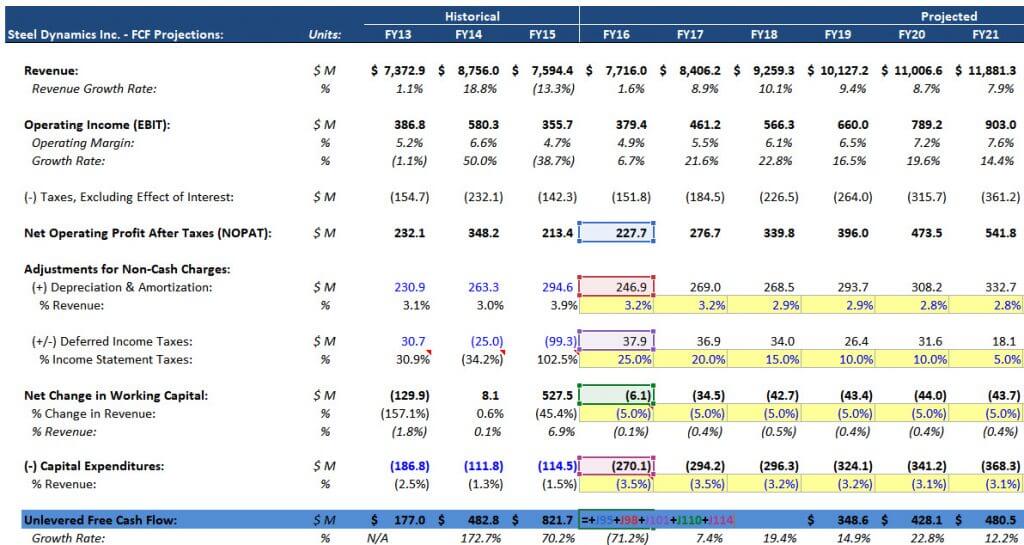
Unlevered Free Cash Flow Formulas Calculations And Full Tutorial
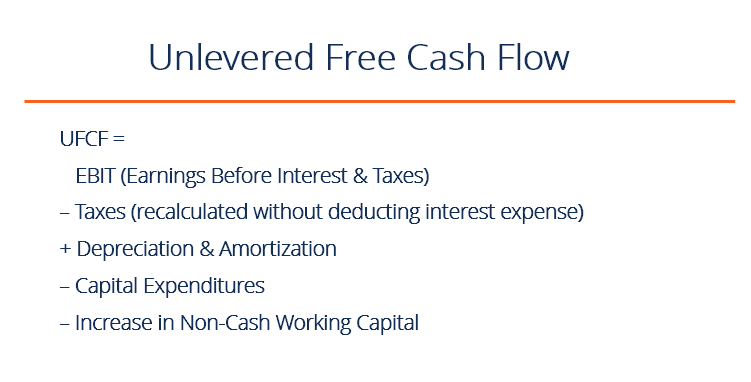
Unlevered Free Cash Flow Definition Examples Formula
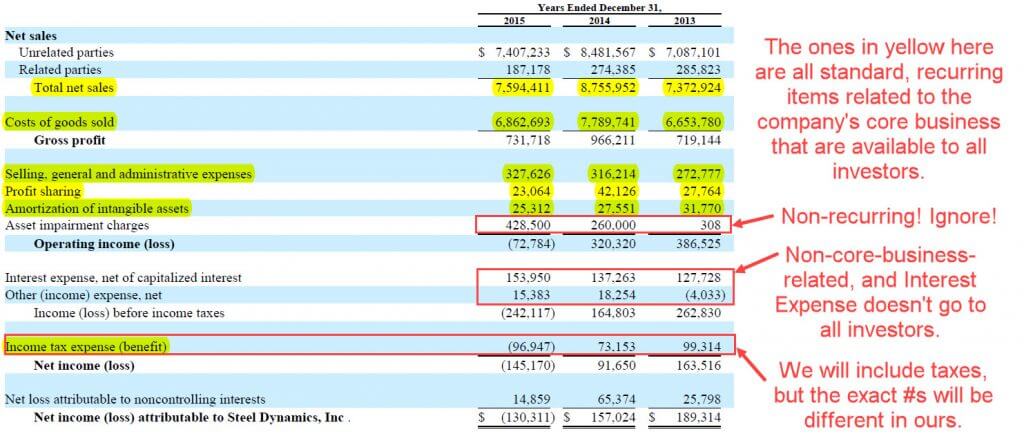
Unlevered Free Cash Flow Formulas Calculations And Full Tutorial
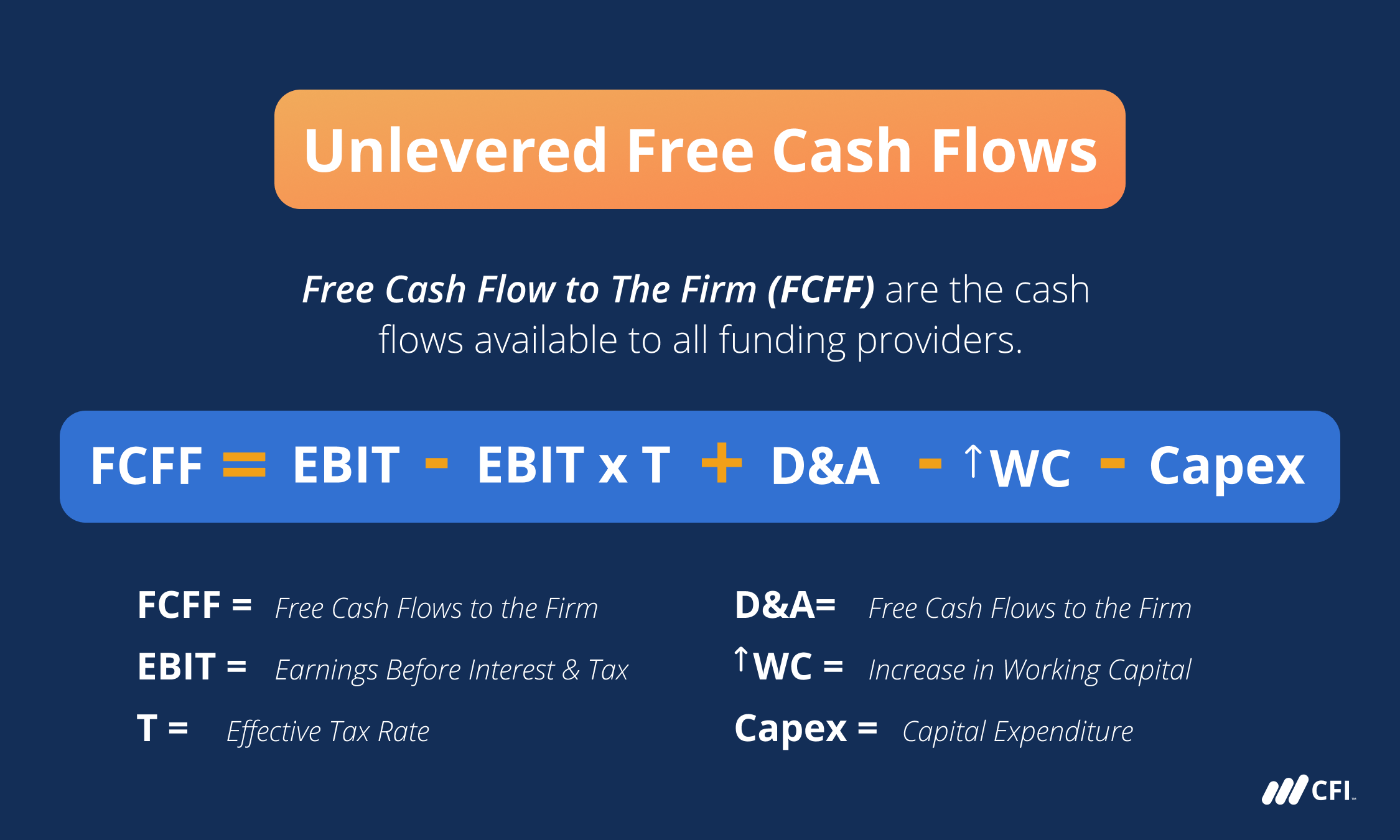
Unlevered Free Cash Flow Definition Examples Formula
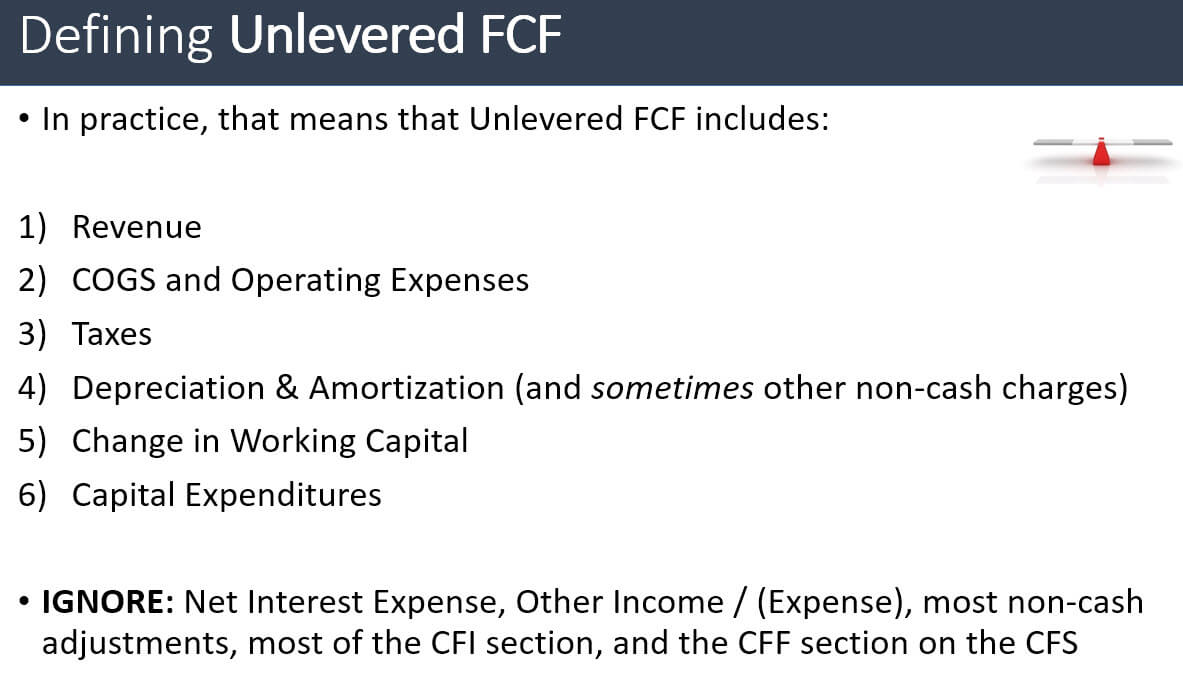
Unlevered Free Cash Flow Formulas Calculations And Full Tutorial